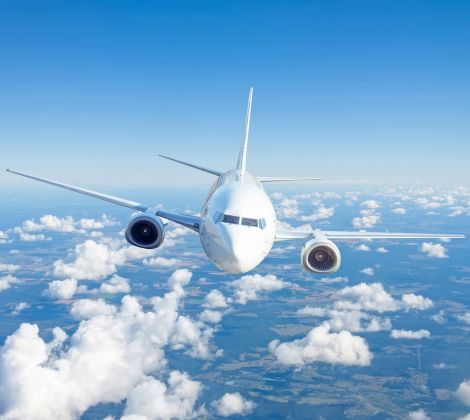What are Aviation Legal Services in Kenya?
Aviation Legal Services in Kenya refer to legal assistance and support provided in matters related to aviation law and regulations in Kenya.
These services may include legal advice and representation on issues such as aviation regulations, licensing, aircraft financing and leasing, aircraft accidents, insurance claims, aviation contracts, aviation-related disputes, and compliance with national and international aviation laws and treaties.
Aviation legal services are typically offered by law firms or legal professionals with expertise in aviation law and a thorough understanding of Kenya’s aviation industry and regulations. This is aided by engaging the Kenya Civil Aviation Authority and other stakeholders.
Is aircraft financing and leasing available in Kenya and how does it work?
Yes, aircraft financing and leasing are available in Kenya. Here’s how they work:
1. Aircraft Financing: Aircraft financing involves obtaining funds to purchase an aircraft.
In Kenya, financing options may include traditional loans from banks, financial institutions, or specialized aviation lenders. The financing terms and conditions will depend on various factors such as the borrower’s creditworthiness, the value of the aircraft, and the specific lending institution.
The borrower will need to provide financial information and collateral to secure the loan. The repayment terms, interest rates, and duration of the loan will be agreed upon between the borrower and the lender.
2. Aircraft Leasing: Aircraft leasing involves renting an aircraft for a specific period, typically on a short-term or long-term basis. In Kenya, leasing options may include operating leases and finance leases.
– Operating Lease: In an operating lease, the lessee (the airline or individual) pays rental fees for the use of the aircraft without assuming ownership or long-term obligations. The lessor (the leasing company or lessor) retains ownership of the aircraft and is responsible for its maintenance and insurance.
The lease term is usually shorter, and at the end of the lease period, the lessee returns the aircraft.
– Finance Lease: In a finance lease, the lessee has a longer-term arrangement and assumes certain ownership-like responsibilities and risks associated with the aircraft. The lessee makes regular lease payments and may have the option to purchase the aircraft at the end of the lease term.
Aircraft financing and leasing in Kenya are subject to regulatory requirements and may involve legal agreements to ensure the rights and responsibilities of both parties are clearly defined.
It is advisable to seek legal and financial advice from professionals with expertise in aviation law and finance to navigate the complexities of aircraft financing and leasing transactions in Kenya.
How does someone start an aviation business in Kenya?
To start an aviation business in Kenya, follow these general steps:
1. Research and Planning:
– Conduct market research to identify potential opportunities and assess the demand for aviation services in Kenya.
– Identify the specific segment of the aviation industry you wish to enter, such as airline operations, aircraft maintenance, and repair, flight training, or charter services.
– Develop a comprehensive business plan that outlines your objectives, target market, competition analysis, marketing strategies, financial projections, and operational details.
2. Legal and Regulatory Compliance:
– Register your business entity with the relevant government authorities, such as the Companies Registry, and obtain the necessary business licenses and permits.
– Familiarize yourself with the legal and regulatory framework governing aviation in Kenya, including the Kenya Civil Aviation Authority (KCAA) regulations.
– Ensure compliance with safety, security, and operational requirements set by the KCAA.
3. Financing and Investment:
– Determine the capital requirements for your aviation business, including costs for aircraft acquisition, infrastructure, equipment, personnel, and working capital.
– Explore financing options such as bank loans, private investors, venture capital, or government support programs.
– Prepare a detailed financial plan and secure the necessary funding to launch and sustain your aviation business.
4. Infrastructure and Resources:
– Identify suitable premises for your operations, such as hangars, offices, or training facilities, depending on the nature of your aviation business.
– Acquire the necessary aircraft, equipment, and tools required for your specific aviation operations.
– Hire qualified personnel, including pilots, engineers, technicians, administrative staff, and any other necessary roles.
5. Operational Considerations:
– Develop standard operating procedures (SOPs) and safety protocols in line with aviation industry best practices and regulatory requirements.
– Establish partnerships and collaborations with relevant stakeholders, such as airports, suppliers, maintenance providers, or training institutions.
– Implement effective marketing and advertising strategies to promote your aviation services and attract customers.
6. Insurance and Risk Management:
– Obtain appropriate insurance coverage to protect your aviation business against potential risks, such as liability, aircraft damage, or accidents.
– Comply with insurance requirements stipulated by the KCAA and other relevant authorities.
Remember, the specific requirements and procedures may vary depending on the type of aviation business you intend to establish. It is crucial to consult with professionals familiar with the aviation industry and seek legal, financial, and operational advice to ensure compliance and a successful launch of your aviation business in Kenya.




